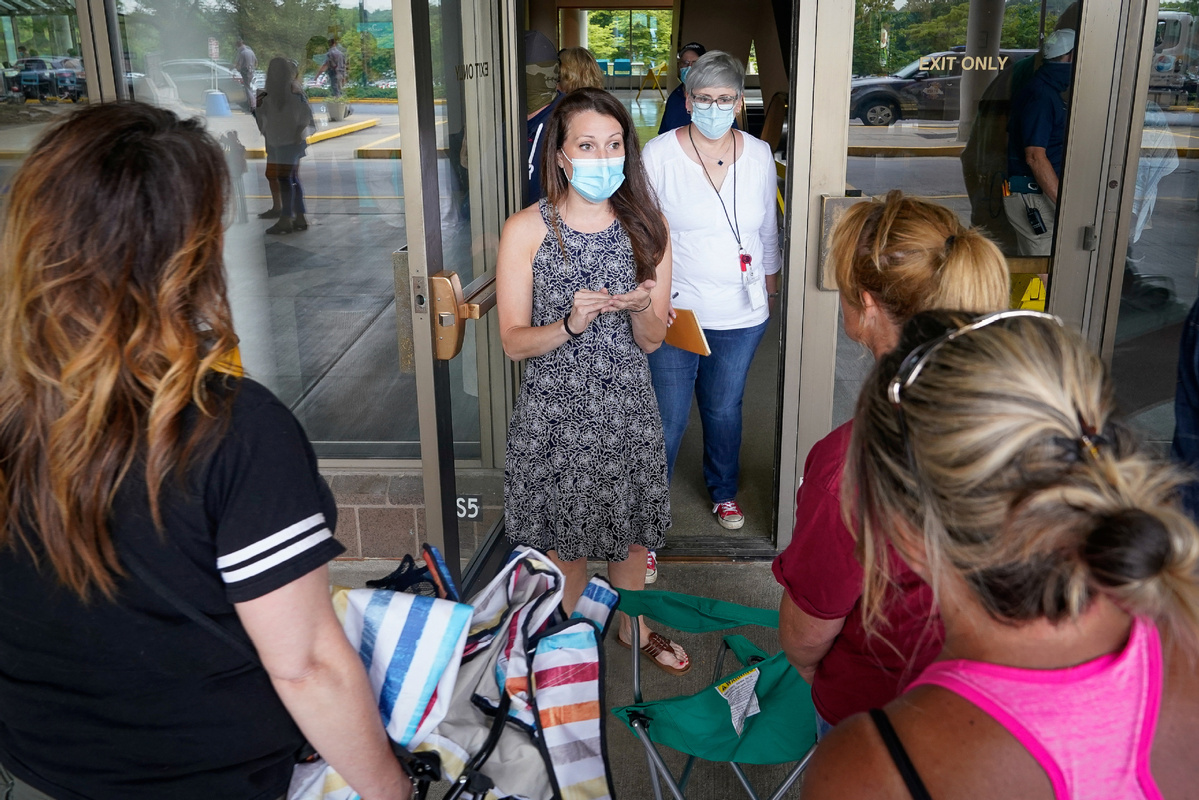US loans in pandemic also go to the well-off
By SCOTT REEVES in New York | China Daily Global | Updated: 2020-07-08 11:19

A US program designed to soften job losses from the COVID-19 pandemic provided taxpayer-funded loans to about 650,000 mostly small businesses and nonprofits, but the well-connected and well-heeled also benefited.
The US Small Business Administration and the Treasury Department on Monday disclosed the recipients of loans through the Paycheck Protection Program (PPP).
Though meant to help employees, loans given to companies affiliated with politicians, celebrities or Wall Street traders aren't prohibited under the program, which was established as part of the $2 trillion Coronavirus Aid, Relief and Economic Security (CARES) Act signed into law in March by US President Donald Trump.
"Originally marketed as a loan to small businesses to keep workers on payroll during a brief pandemic-induced shutdown, the PPP has become a grant program giving billions to small, medium, and large businesses to pay for much more than just workers' paychecks," said the Brookings Institution, a Washington-based think tank, in a research report.
"This new law further shifts the program from helping workers survive the crisis to helping businesses stay afloat. The result will be that more workers at small businesses fall through the cracks of this hastily designed safety net," the report continued.
Treasury Secretary Steven Mnuchin said the program was intended to help small companies hit hard by the pandemic that couldn't tap the debt and equity markets or credit lines at major banks.
Initially, Mnuchin said he wouldn't release the information because it was "proprietary" and related to private businesses. But he relented after members of Congress, mostly Democrats, objected.
Since March, the PPP has authorized loans totaling approximately $521 billion, or about 75 percent of the total appropriated by Congress, which has extended the application deadline to Aug 8 from June 30.
In applying for the loans, companies said the funds would support about 51 million rank-and-file jobs nationwide.
But many of the elite also benefited from PPP loans.
US Transportation Secretary Elaine Chao's business, Foremost Maritime, received a loan valued at $350,000 to $1 million. Chao is married to Senate Majority Leader Mitch McConnell, a Kentucky Republican.
Perdue, a trucking company co-founded by US Agriculture Secretary Sonny Perdue, received approval for a loan worth $150,000 to $350,000.
EDI Associates, a company connected to investor Paul Pelosi, the husband of House Speaker Nancy Pelosi, a California Democrat, received between $350,000 and $1 million.
PlumpJack Winery, co-owned by California Governor Gavin Newsom, a Democrat, also received a loan totaling $150,000 to $300,000, although billionaire Gordon Getty is the majority owner.
The winery received some negative publicity last week when Newsom said the Napa County business would remain open while about 70 percent of the state would be locked down due to the coronavirus. According to news reports, the winery was later closed due to "logistical issues".
Nobu, a chain of luxury sushi restaurants and hotels, received 14 loans totaling about $28 million. The company was founded by actor Robert De Niro, chef Nobuyuki Matsuhisa and movie producer Meir Teper.
The Boies Schiller Flexner law firm, led by David Boies, who represented former vice-president Al Gore in the disputed Florida vote count in 2000 that was decided in President George W. Bush's favor, received between $5 million and $10 million.
The Archdiocese of New York received a loan valued at between $5 million and $10 million. Catholic Charities of San Francisco, New Orleans, Boston and Washington received about $2 million each.
The Joseph Kushner Hebrew Academy in New Jersey, named after the grandfather of Trump's son-in-law and adviser, Jared Kushner, received a loan valued at $1 million to $2 million.
























